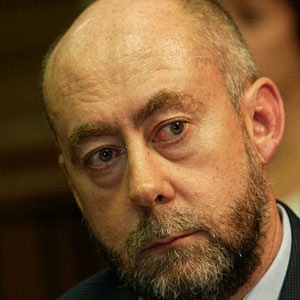
There was an unexpected twist at the sentence proceedings on Monday of Dr Wouter Basson - the man who was at the helm of the apartheid government’s biological warfare programme.
Basson was found guilty of unprofessional conduct by the Health Professions Council of SA (HPCSA) in December 2013, following a six-year long inquiry.
On Monday 19 January 2015 Basson’s legal team was presenting mitigating evidence for his sentencing; however, they surprisingly took aim at HPCSA chair Jannie Hugo.
Disclosing information
They want Hugo to disclose information that could potentially reveal a bias against the apartheid-era chemical warfare expert.
Jacaranda News reported that Basson's legal team was successful in this regard after Health-e News reported that they staged a walk out seeking to file an urgent interdict at the North Gauteng High Court in Pretoria.
The HPCSA later confirmed on Monday that a high court application was lodged by Basson's legal counsel.
"An order is sought to compel the Chairperson of the Professional Conduct Committee, Professor Jannie Hugo and a member of the Committee, Professor Eddie Mhlanga to provide information relating to their membership to any of the organisations who signed the petition agitating for the removal of Dr Basson from the roll of medical practitioners.
"A further order is sought to prohibit Prof Hugo and Prof Mhlanga to proceed with the disciplinary proceedings against Dr Basson pending the finalisation of an application for the recusal of Professor Hugo and Professor Mhlanga to be filed within 48 hours," it said.
Under review
The HPCSA added that the Professional Conduct Committee of the HPCSA will convene on Tuesday where they will discuss the court order.
Meanwhile, Sapa reported that medical practitioners were shocked by remarks made by Basson in the aftermath of the labour unrest at Lonmin’s Marikana platinum mine in the North West that left 34 people dead.
The hearing heard that he apparently said in a radio interview that Marikana would not have happened if the police used chemical weapons he had developed decades ago.
"I listened to the interview and could not believe what I was hearing," University of Cape Town lecturer and clinical pharmacologist, Professor Marc Blockman said.
Read: What are chemical nerve agents?
Showing no responsibility
"I called my colleagues and they listened and sat there in shock... here was a man who had been found guilty a few minutes ago, and held an interview showing no responsibility or respect for the profession."
The radio interview took place in December 2013, shortly after Basson was found guilty of professional misconduct.
Salie Joubert, for the HPCSA, asked Blockman what he thought about the interview.
Blockman said there was a sense of arrogance in Basson's voice.
"From what I heard, there was no ounce of remorse in what he was saying; that Marikana would not have happened if his chemical weapons were used by police... there was a level of arrogance in his voice."
Blockman said the upholding of good professional conduct and doing what was morally right was important in the medical profession.
Hearing will set new standards
He also added that the outcome of the hearing will set a precedent for behaviour in the medical profession.
"As this is the first case of its kind in South Africa. It will be a showcase to the world of the nature of the ethical standards applied by South African health professionals."
According to the Mail&Guardian, Basson’s legal teams have in the past succeeded to help drag on the HPCSA hearing for almost 14 years.
Ban on practicing medicine in SA
It added that Basson runs a cardiology practice in Cape Town; however, if the tribunal finds him guilty of unethical behaviour, he will not be allowed to practice medicine in South Africa.
In his defence, Basson at the time presented nine arguments in which he claimed he acted as a soldier and not a doctor in relation to his involvement in Project Coast, between the 1980s and early 1990s.
He was accused of acting unethically by being involved in the large-scale production of Mandrax, cocaine and tear gas, of weaponising teargas, and of supplying it to Angola's Unita leader Jonas Savimbi.
He is also accused of acting unethically by providing disorientating substances for cross-border kidnappings and making cyanide capsules available for distribution to operatives for use in committing suicide.
Read more:
What is bioterrorism?
Shoe reflectors may detect bioterror threats
Terror takes a mental toll
(Sources: Sapa, Health-e News, Jacaranda News, Mail&Guardian)




 Publications
Publications
 Partners
Partners










